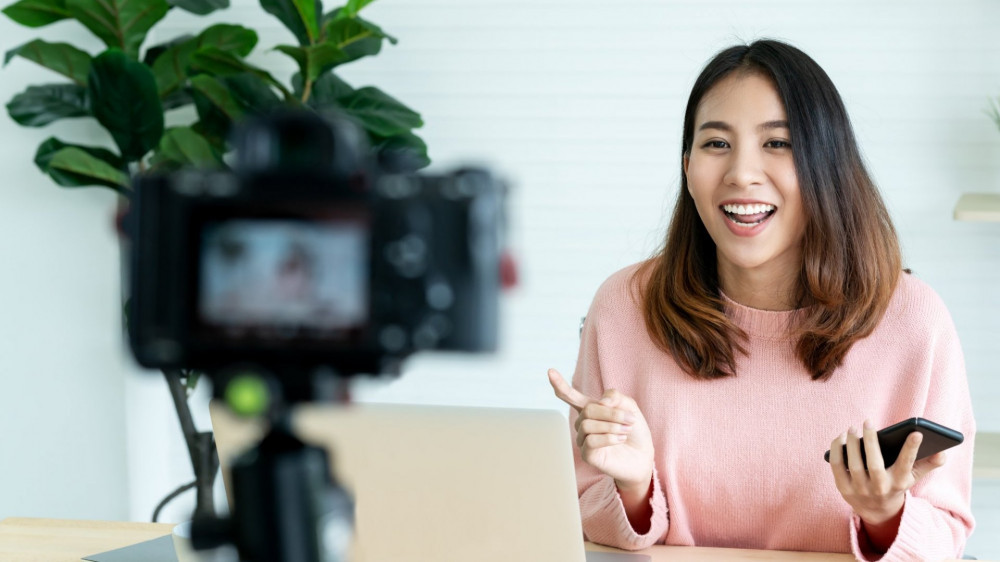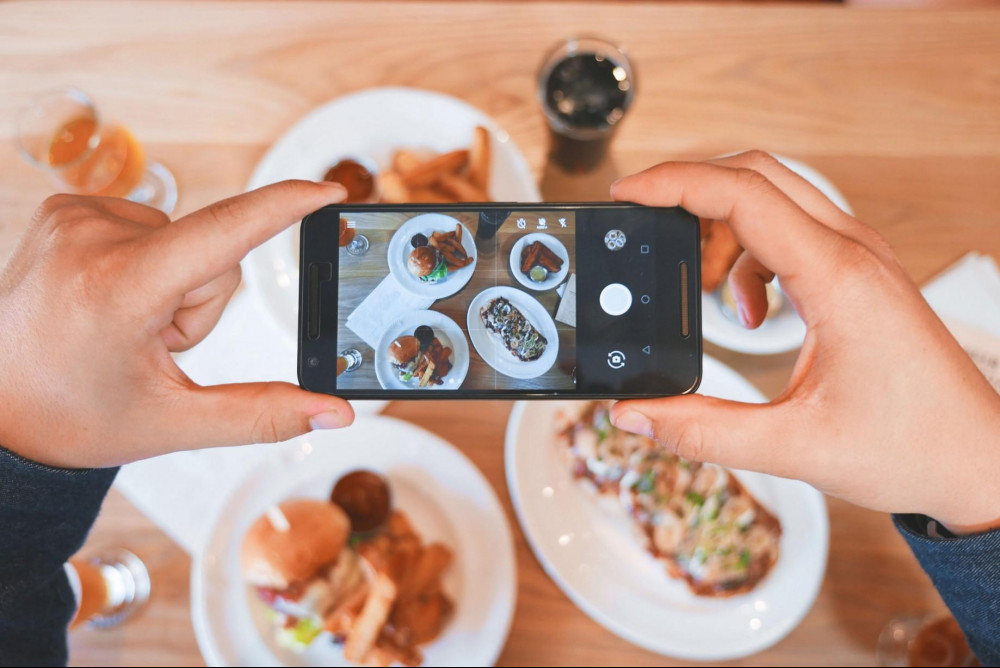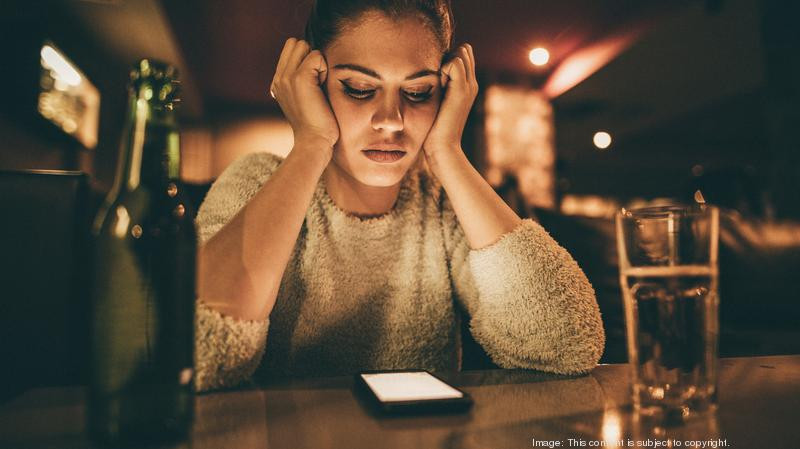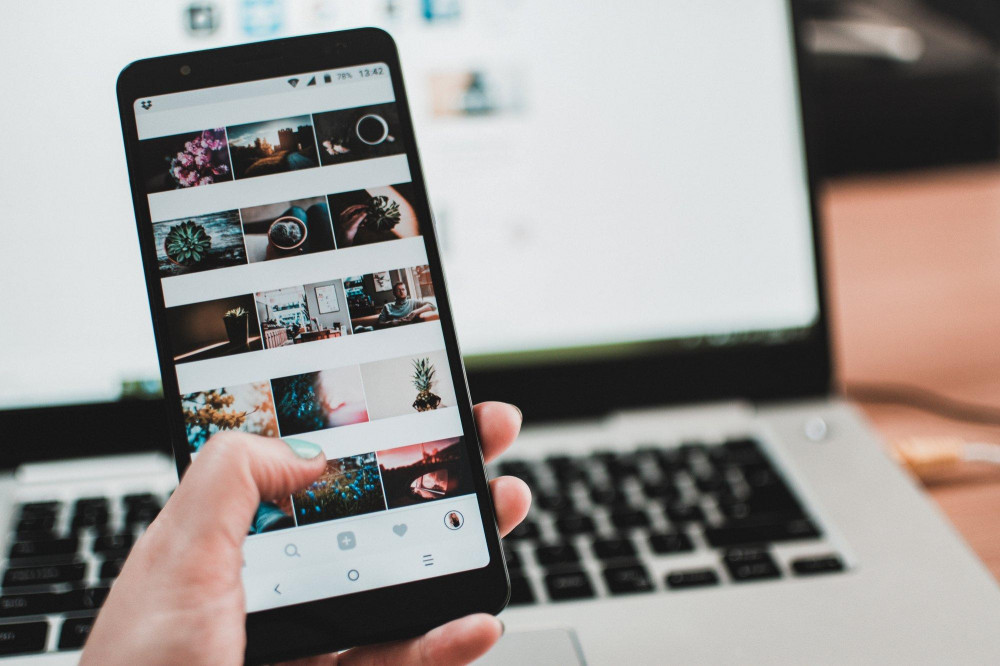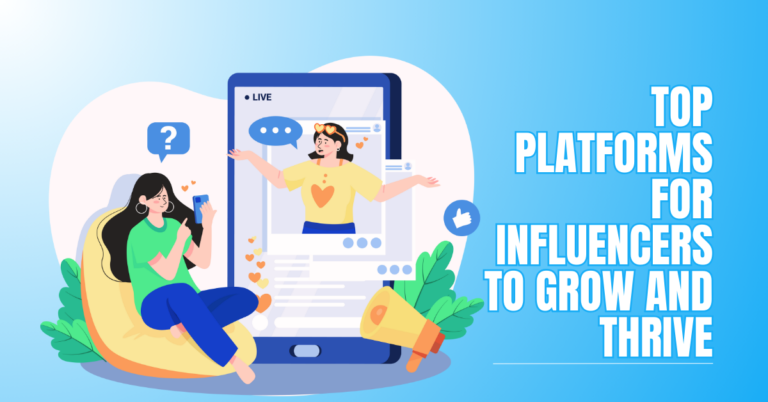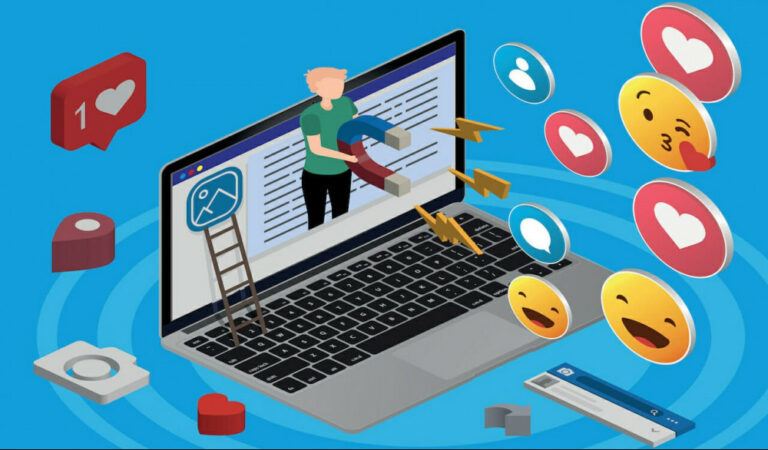Negative Effects Of Social Media Influencers
Negative Effects Of Social Media Influencers
According to a July 2020 report by the corporate marketing firm Kepios, more than half of the world’s population — a staggering 396 crore people — use social media. This means that companies like Instagram can now target over 100 crore people with just a single ad. As a result, we, the users, become the commodity, and our behaviours are up for sale whether we know it or not.
Social media influence is the impact that a person or a group has on others. Although persons and groups have always exerted influence on others, a new character has come to the fore in today’s brave new world — the “social media influencer.”
Are influencers really here to inspire? Or do they actually affect our lives in a negative way? As teenagers, influencers' worlds can seem like paradise, in a way that can send our self-esteem plummeting; it can increase FOMO and, unfortunately, create anxiety. Heck, this isn’t just relevant for teens, but everyone has felt this pressure exerted onto us from the ever so powerful social media.
The truth is that people only show the sides of themselves they want the world to see, they want you to see how beautiful they look after a breakup, how amazing their recent vacations were, and to show off their clothes that you just can’t afford. And even then, we must speculate whether the side they’re showing is even true at all, that it’s not just some fantasy they conjured up in order to fulfill their ego.
Influencers are affecting us: with the rise of social media, we’ve become a generation that is image-obsessed, ready to give up when we haven’t reached our dreams like “so and so” has. We feel like failures, prepared to yield at any roadblock we encounter.
Here we cover the negative effects influencers can have on us.
Want to Start Making Money Online?
Try My #1 Recommendation Program!
Social Media Influencers
Social media influencers are individuals who are famous for using social media. The most popular are bloggers, photographers, makeup artists, and influencers on YouTube, Instagram and Snapchat
Famous names like Kim Kardashian and Taylor Swift have made an empire with their Instagram accounts, “likes,” followers, and followership. These are not the only influencers; any individual who has millions of followers or likes is considered an influencer.
In fact, influencers are the face of any brand or brand’s brand. Their social media pages are so large, so vast, that even a tiny comment from one of these “famous names” can have millions of views and comments. Their voice is crucial to a brand’s marketing because they know what their fans want. It is their power, for better or for worse.
What Influencers Do
People like Kylie Jenner and Justin Bieber make millions with this lifestyle; their social media influence is responsible for their products selling out at online retailers and garnering millions of views for music videos. Influencers build careers that can have great financial and personal benefits, not to mention the fact that brands always pay them to promote their products on their social media pages, sometimes for free.
Influencers create a cult-like following, building their own brand. But are influencers really here to inspire? Or do they actually affect our lives in a negative way? As teenagers, influencers’ worlds can seem like paradise, in a way that can send our self-esteem plummeting; it can increase FOMO and, unfortunately, create anxiety.
Social media influencers are people with large followings on different social media platforms. These influencers can change a person or group’s entire existence by influencing people and affecting their opinions on certain topics. Influencers often use their social media following to gain a social media following.
Some of them will invite their audience to follow them to their home or to follow the followers of their following on the day that they do something they find special. For example, one social media influencer might invite their following to a new talent show the following day, and they will invite their following to follow the followers of that follower on that day. This is what social media influencers do — they invite their followers to follow their followers.
Want to Find Out How To Start Your Home-Based Business?
Try My #1 Recommendation Platform!
How Influencers Affect Us
Social media influencers are individuals whose behaviour influences the way we perceive people, events and things. Although they do have a positive impact on people and are often positive and empowering, influencers also have a negative effect on the way we live our lives and interact with others. One negative effect is Relationship problems.
“The main reason that [social media influencers] have relationship problems is that they’re dealing with feelings of inadequacy,” said Starr Lavin, a New York-based relationship therapist and author of “Relating to the Psychopaths Among Us”. Lavin goes on to explain that “guilt is actually a very common trigger” for relational issues.
In an interview with digital magazine Coveteur, Tristan Eaton — one of the founders of the influencer agency called College Media Matters — had this to say about the impact that social media influencers can have on us: “A lot of people tell me that the influence that [social media influencers] have is supposed to be really good for them… It is.
But it's not like we're all like little doctors; we don't know everything about you, but what we know about you is only a snapshot of your life, and it's not even a whole picture.” The key part here is the “snapshot.” The influencer’s curated, filtered, edited Snapchat stories and Instagram posts do not represent the real person. A lot of posts are edited or cropped to gain an immediate impression.
Social media influencers can make us feel less and less relevant. The latter is detrimental to someone’s self-esteem. We begin to think that we are not as valuable to others as we used to be before the introduction of the influencers. As you may know, influencers and bloggers often have numerous social media accounts. These accounts range from personal blogs to their own personal brands.
Blogs give them the perfect chance to interact with fans; it’s also a great way for them to reach a global audience. For example, social media superstar Arianna Huffington made her name by publishing her personal blog, leading her to become a prominent feminist icon. However, just because someone has millions of followers doesn’t mean they have the ability to influence.
The Influence Of Social Media
Before we look into the facts and discuss the pros and cons of social media influencers, let's give a definition to influencers. By definition, an influencer is a person or group who has a significant influence on the actions or behaviours of a large number of people or objects. According to Know Your Meme, an online encyclopedia, “The definition of ‘influencer' varies a lot among the people who use the Internet.
For a person to be an ‘influencer' is most often linked with being popular in some way, like via a large number of followers or a popular social media page. However, this definition is vague and can be altered quite easily. For example, one person's follower count might be a number in the thousands while others are in the millions.
Nowadays, we are more aware of our privacy than ever before, and there is a danger of a consumer’s lack of confidence and self-esteem overwhelming their decision-making. All of this can make us susceptible to influence by influencers and, as a result, to make poor choices.
That’s because social media influencers have become the new celebrities or the new rock stars. Well-known brands have also been very successful in establishing themselves through the social media sphere, in that they have been able to convince consumers to follow them.
Negative Aspects Of Social Media Influencers
Particularly when we're young, social media influence can come with its own pressure. In the face of an unforgiving, competitive environment, it becomes more challenging to come to terms with just who you are as a person. Who am I, and who am I meant to be?
We believe social media influencers and celebrities to be “made-up” versions of ourselves, as we believe they represent the world as it is. But, even, in reality, most of us don't live up to the social media model we put forth. Take Kyra Kenly, a model and influencer who suffers from body dysmorphia (an anxiety disorder that causes someone to be dissatisfied with the way he or she looks).
When promoting a swimsuit cover in a magazine, she requested that she be left out of some of the photos, because she looked “gross” in them.
Some of the potential pitfalls of social media influencers may surprise you. Here are some examples: 1. Negative effect on self-esteem – A study by Northwestern University found that the popularity of an influencer influences the ratings of a product or service more than the product itself.
The ratings become affected by how a person feels they are better than others. 2. Mental health – Some people use social media as a crutch when they are feeling unhappy. However, social media has the potential to be addictive. Some scientists even believe that online gaming can cause addiction, and social media is no different. We also know that while the world is designed to be live-streamed, it is also a time-consuming job.
Toxic relationships, bullying, poor body image, cyberbullying, and overall body image issues are all a result of influencers in social media. Social media influencers today are mostly young women, with the largest contingent of women being aged between 18 and 24 years.
The millennial generation, too, is becoming more concerned about body image and being “fat-shamed” as they rise up in the world. Research shows that negative impacts of influencers are compounded when influencers are highly valued by their audiences.
These followers are most likely to watch their every move and are invested in their happiness. Author Aprile Sundzil states that influencers should use “active and thoughtful self-awareness” in their projects and should not portray a world that they are not a part of.
Negative Effects Of Social Media Influencers
FOMO (fear of missing out) – People with FOMO feel trapped by social media, and wish to escape. They become anxious about missing out on the latest trends and events. The Pew Research Center found that people in the United States were “more likely to have FOMO” than they were in 2014.
The report also said that 50 percent of teens feel FOMO. A toxic relationship with celebrities – Studies show that we place celebrities at the center of our lives, rather than trying to live our lives. It is true, celebrities are interesting and attainable — it seems almost impossible to get a selfie with your favourite actor or celebrity.
Social media influencers are well-known for being your role models, but what most don’t realize is how these influencers affect your life in such negative ways. Their influence can drive self-esteem downwards and can negatively affect every aspect of a person’s life — be it their dating life, their education or their health.
It is vital that we recognize and be more aware of how this impacts our lives. Is it normal to have high self-esteem? A common misconception when it comes to self-esteem is that it is normal to have high self-esteem. This is often what we were told at school and when we are younger. But, what we fail to realize is that our self-esteem and confidence are a result of our experiences and how we are shown attention.
As we grow older, the implications of being influenced can have a more powerful impact. Social media is a major contributor to a nation’s health. It is related to a number of health problems including anxiety, depression and anxiety. By looking at photos of seemingly perfect lives, we are bombarded with unrealistic expectations about how to look.
This is part of what is referred to as the “perfection bias.” We compare ourselves to celebrities and people we perceive as “perfect,” which gives us FOMO. The idea is that social media pictures of perfect lives are so compelling that we feel compelled to do what they do, but then we don’t value ourselves and the choices we make.
Are You Tired Of Scams?
Try The Most-Trusted Training Platform To Make Money Online!
The Relationship Between FOMO And Anxiety
The Fear of Missing Out (FOMO) is the fear of missing out on something great. It comes from the fear of being left out and, therefore, causing others to be left out. This is the most widespread reason for people getting anxious since a social network is often used as a way of staying connected. When influencers make all of their followers feel left out and part of the group, this is when anxiety comes in. There have been several studies done about the connection between FOMO and anxiety.
After watching enough “Gossip Girl,” you will probably understand that FOMO, or fear of missing out, is everywhere. Essentially, when someone shares a photo of themselves or of a moment, some people are actually excited because they want to see more photos, more places or more fun activities. It doesn’t matter if that person is popular or a complete nobody, they want to be a part of their friends’ lives.
However, some people worry, “will I ever get to be a part of this?” This can have both a positive and a negative effect on an individual’s anxiety. On one hand, FOMO is considered a good thing because it makes us want to be a part of whatever our peers are doing.
FOMO is an acronym for the fear of missing out. Although this acronym and concept may seem harmless enough, a study conducted by Camilla Benbow from the University of Michigan found that fear of missing out (or FOMO) affects a person's ability to cope with negative emotions like sadness and anxiety.
A separate study found that FOMO is directly connected to a person's ability to control and regulate their emotions. We get FOMO from the likes, dislikes, opinions and reviews of other people, so if we think we’re not as popular as those we follow, we feel sad and anxious.
The Good And The Bad Of Influencers
Like any influential person or group, influencers are brilliant and, unfortunately, dangerous. They are an actual threat to humanity because they can divide and exploit people. This can come through manipulation, false advertising or by using advertising or branding tricks. No one wants to buy a product that promotes an idea they’re uncomfortable with, so that can’t be fun for the influencer.
On the other hand, many people actually do buy products that promote issues that they are already on board with. Many influencers who push for a pro-LGBT agenda or against Trump have a lot of followers, and they are able to sell products to their audience who feel an urge to buy from these types of companies.
One of the most glaring differences between individuals and influencers is that we must think about the content that we are creating. Social media influencers are not primarily working for the benefit of themselves, and therefore, do not work in a way that can guarantee their survival or happiness.
A popular term to describe this, in a negative sense, is called, “lifestyle vlogging,” which refers to a specific type of internet content. Lifestyle vlogging involves having a persona who is paid to appear as the lifestyle, physical, and emotional makeup of a certain individual; this persona goes to parties, does fun activities, posts a constant stream of content, and relies on users liking and replying to posts. Influencers do this to build a platform for their own following.
Why Do Influencers Influence?
Social influencers leverage the power of influencer marketing to influence others with their personal or professional narratives and upload pictures to their social networks for the purpose of earning money, brand exposure, or popularity.
According to PageFair, online ad fraudsters have hijacked the word influencer, often when they use the word to create or re-create, a context that should be clear for users but is anything but. From beauty bloggers with an Instagram following of 10,000 to fashion influencers with over two million on Instagram, influencers can extend their reach and effectively sell a product or service, depending on the platform and the brand.
In some way or another, we've all been affected by social media influencers, who in turn influence our decisions and behaviours. For example, take photos of you that look particularly enticing and others will follow suit, believing they have something to offer others.
Not only is this really bad for your self-esteem, but it can lead you to run to the store and buy a product just because someone looked better in it than you do, therefore manipulating your purchasing decisions in an indirect way. What are the social media influencers?
These days, influencers include everyone from a TV host on the television to a regular mom on Instagram to a famous YouTuber. These influencers have become so widespread that the most we see are just the people we know.
Conclusion
The importance of family and friends is something we’ve all learned. And of course, social media can have a positive impact on all aspects of our lives, including mental health. However, like anything that has become a part of our lives, we must take responsibility for our own decisions and lives.
Facebook can be helpful, but it can also cause anxiety and confusion. Many people wonder how much of their life they’re actually willing to share on social media, or where the line should be drawn. There is a power in transparency; many will stand behind Facebook or Instagram as a platform that can provide for a more authentic life. Social media is a blessing, but it can also be a curse.
Some influencers might not do much to motivate people, while others might have many inspiring things to say, but are completely misrepresented. Although these two types of influencers are, indeed, real, there is a heavy cost of endorsing influencers, especially when they are widely known for their controversial, obscene, hate-filled posts. It’s time to be wary of the people you follow.
I trust you enjoyed this article about the Negative Effects Of Social Media Influencers. Would you please stay tuned for more articles to come? Take care!
JeannetteZ
Want to Learn How to Build Your Own Home-Based Online Business & Start Making Money Online From Your Comfortable Couch?
Try Wealthy Affiliate!
Your Opinion Is Important To Me
Thoughts? Ideas? Questions? I would love to hear from you. Please leave me your questions, experiences, remarks, and/or suggestions about the Negative Effects Of Social Media Influencers in the comments below. You can also contact me by email at Jeannette@WorkFromAnywhereInTheWorld.com.
Here are some of my favourite blog posts:
How To Best Use Social Media For Small Business
Best Shareable Social Media Content To Create
How To Build A Business Page On Facebook
Top Types Of Social Media Content To Create

